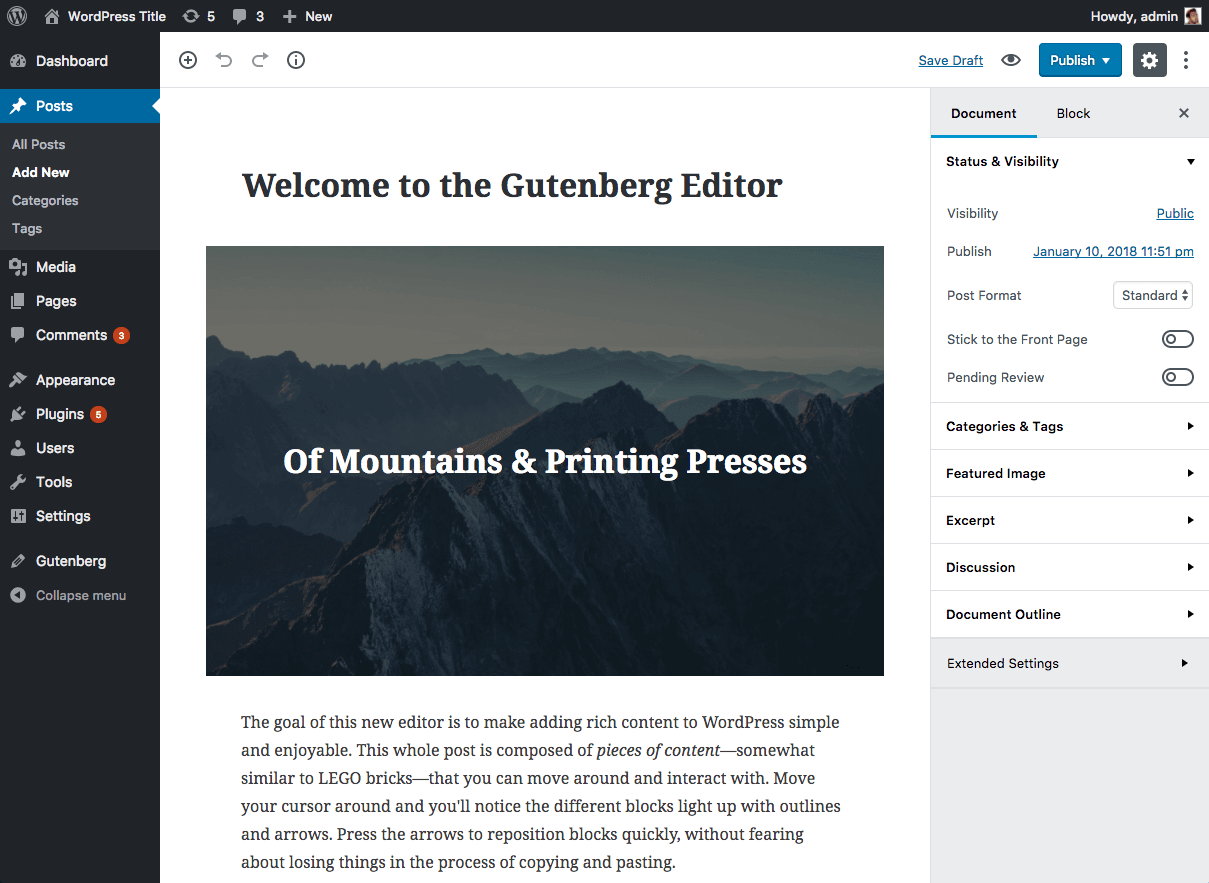If you’re involved in the WordPress community in anyway you’ve by now read untold numbers of think pieces on WordPress’s planned editor overhaul codenamed Gutenberg.

I’ve been waiting to put my thoughts to pixel until I familiarized myself with the project a bit more. Now that I’ve worked my way through most of the spec, (It’s a real page turner up to the Meta Boxes section.) I’m ready to drop in my initial thoughts.
But First
Gutenberg is brand new post and page editing experience that will be rolled out to WordPress in version 5.0. Due out in April.
It’s currently available on the repository as a feature plugin so you can test it out today1. And I’d recommend you do. Probably not on your production site, but it will be useful to get familiar with it quick.

Gutenberg Scared Me
The thought of needing to go back on 5+ years of custom WordPress work and adapt and test for Gutenberg support is enough to wake me from the deepest sleep. Good thing the 7 month old already takes care of that.
We’ve been building custom WordPress themes with lots of custom fields at Red8 Interactive for several years. And all of those sites will be upgraded to receive Gutenberg support when WordPress 5.0 comes out. Something will undoubtedly break. A client will panic. I’ll work late. It will happen.
This could potentially slam our 4 person development team. Taking away resources from new projects.
One of my big goals in the first quarter of 2018 will be determining how to best prepare our clients and our team for Gutenberg.
Gutenberg will be good for WordPress
Despite all the fire and brimstone above that doesn’t mean Gutenberg isn’t a necessary step forward for WordPress.
The WordPress editor is becoming dated. The selling point of it being the easiest CMS to use is holding less weight as other publishing experiences surpass it.
We may have to adapt and find new methods for making the most out of our custom WordPress sites. But we’re developers that’s what we do. (That and being really really good at knowing what to Google.)
Gutenberg is for the User
Gutenberg is being built to improve the end user experience. It isn’t being built to make it easier for developers to bend WordPress to our will.
But that doesn’t mean we still can’t. It’ll bring a more consistent and modern page building experience to WordPress. Which is good for everyone.
Continuing the Conversation
I’m not saying we should just blindly accept Gutenberg as it currently sits. Or even as it is initially released. Like all good software projects it will continue to grow in the future.
But we should accept that it’s coming and start preparing. Zac Gordon has a course on developing for Gutenberg. I’m working my way through it now.
I’m both excited and scared for what Gutenberg means for WordPress in the future. Now it’s time to get ready.
We’re developers. We adapt. We’ll find a way.
https://giphy.com/gifs/editingandlayout-VHW0X0GEQQjiU
- Take the poor reviews with a grain of salt. It’s a combination of legitimate gripes, sour grapes, and reviews of an early beta.
